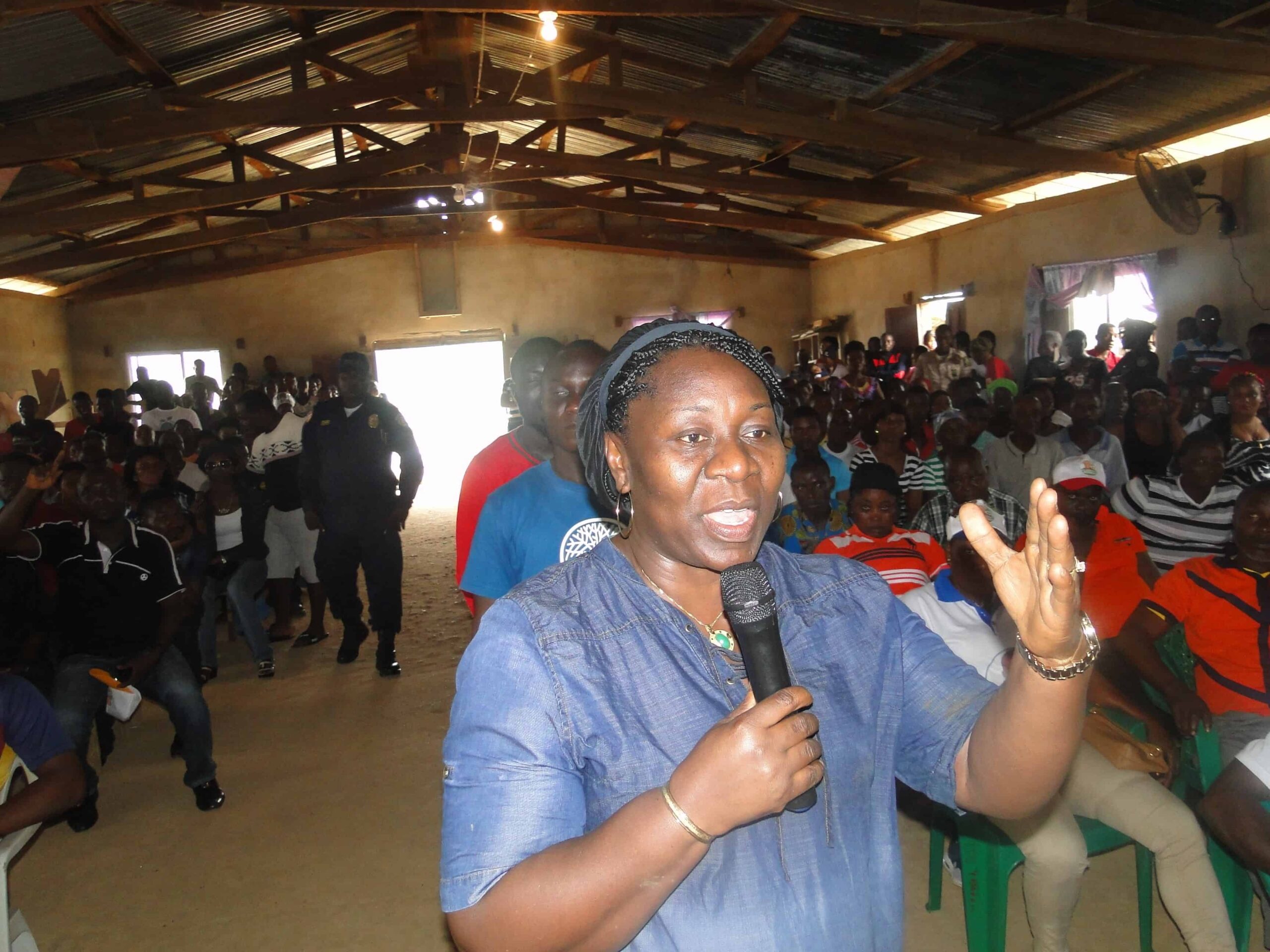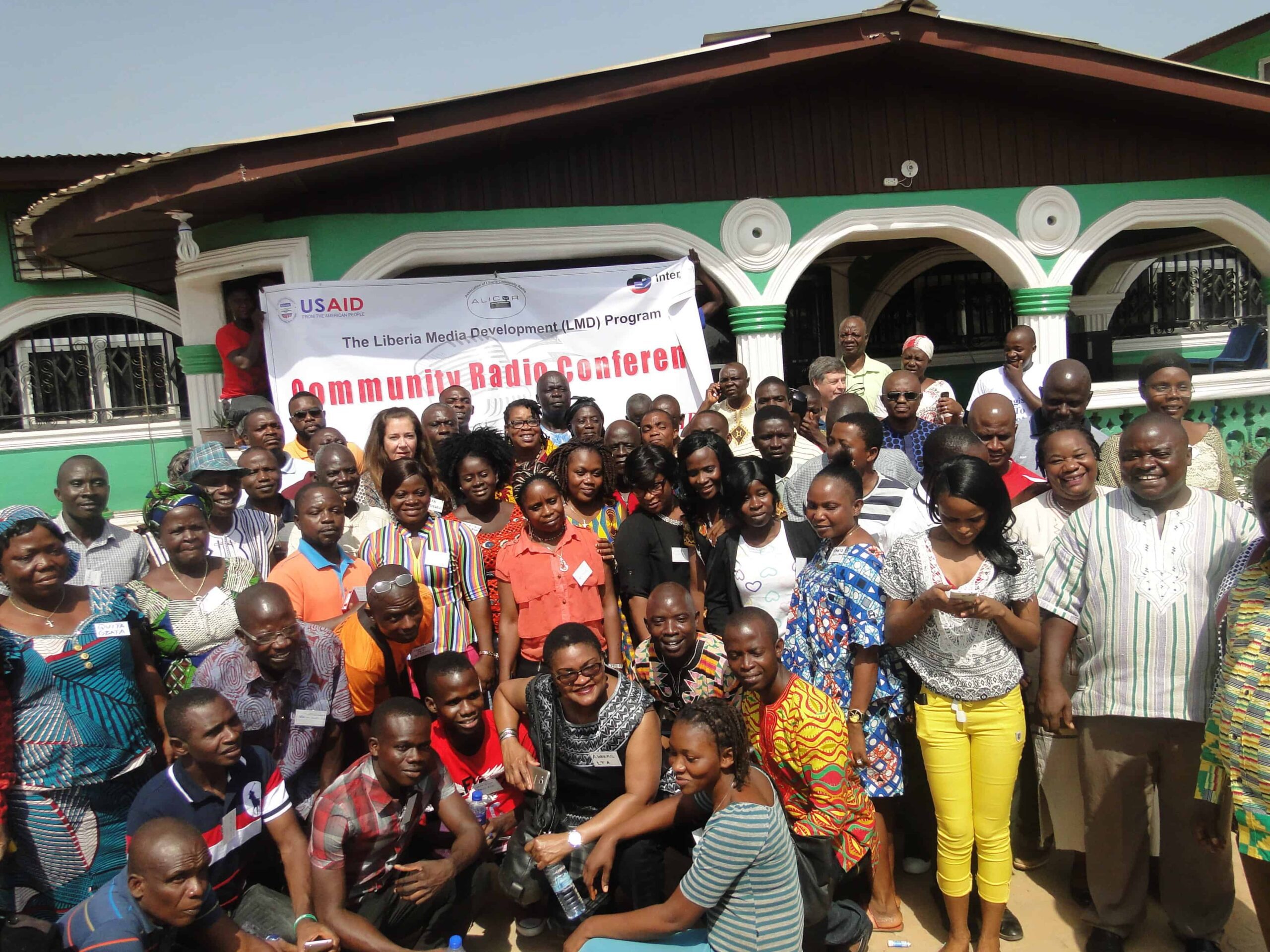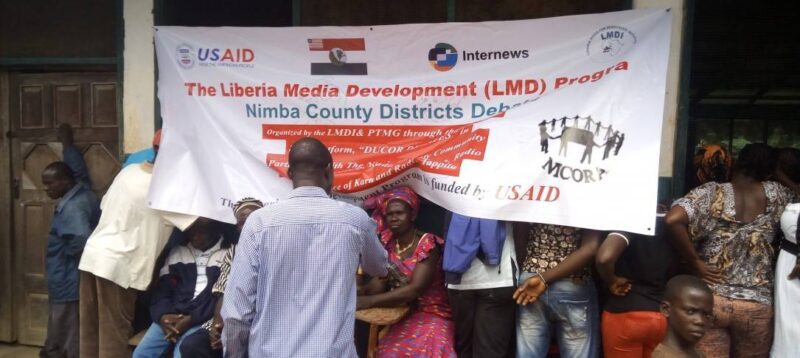A forthcoming study provides evidence for the long-standing assumption that active participation in democratic elections increases when voters have increased access to high-quality candidate information.
In Liberia, Harvard University researchers conducted research alongside Internews’ year-long effort to train media agencies and journalists to report on the 2017 elections and to run 126 public debates in every single district in Liberia – a first for the country.
As a result of citizen exposure to the debates, the research found statistically significant increases in citizens’ political engagement, knowledge about candidates in the election, and ultimately turnout on Election Day, across the nation.
Higher intensity of the debate initiative, through more radio rebroadcasting and higher candidate participation, caused a 2% increase in actual voter turnout.
It additionally led citizens to change their vote choices towards candidates who better matched their policy priorities. Descriptively, 13% of survey respondents stated that the debates changed who they would vote for, and 6% stated they changed whether to vote at all.

The study by Harvard researchers Jeremy Bowles and Horacio Larreguy used a wide range of data sources, including a panel survey of over 4,000 citizens across the entire country, a survey of 600 candidates, and debate transcripts. Internews conducted 20 focus groups with more than 250 citizens and candidates. The researchers conducted a randomized controlled trial, varying components of the debates initiative, to provide rigorous evidence regarding its overall impact.
Nationwide debates and lasting impact
The world watched to see if the post-war nation of Liberia could achieve a peaceful transition in power for the first time in decades in the October 2017 contests to elect the President and House of Representatives.
In the run-up, Internews trained local journalists and media houses to set up and conduct structured, moderated debates focusing on local community issues in each of Liberia’s 73 legislative districts. 584 legislative candidates attended the two-to-three-hour debates in front of their constituents in every district, reaching more than 23,000 citizens in person. The debates were broadcast live by media partners and then rebroadcast up to 10 times each, adding up to more than 500 re-broadcasts.

As many as 25% of the nation’s eligible voters, roughly 500,000 people, listened to these debates, according to the forthcoming study.
Read more about the nation-wide debates.
Beyond the impact of the debates on the 2017 electorate, the lasting impacts of the work include increased capacity of Liberian journalists to report accurately on elections process and increase government accountability. Liberian media, both urban and rural, now have the capacity to moderate and broadcast candidate debates that are fair, impartial, balanced and contribute to peaceful elections.
Further, because the debates were issue-oriented, elected candidates now have a public record of promises and positions, to which local media and local electorates can hold them accountable. Citizens also reported more confidence in peaceful elections, after seeing the candidates appearing in person alongside their opponents, moderated peacefully in front of their constituents.
Reporters from rural areas, which are often underserved in national elections and debate that focus on urban power centers, had a newly amplified voice in the election and news coverage.
Members of Liberia’s rural network of journalists, Local Voices Liberia, saw their election-day coverage picked up by national and international media. “Before, our stories were only heard on our community radio station,’’ said Tenneh Kamara, a reporter at Radio Gee in Rivergee. ‘Now, people on the world wide web know what’s happening in our rural communities. This is a big advancement for journalism in Liberia.’’
“Internews is really building our capacity,’’ said Franklin Flomo, a reporter at Radio Life in Zorzor, Lofa County. “We are engaged with citizens, and our coverage has expanded.’’
• • •
Internews’ work was conducted with support from USAID and in partnership with the Press Union of Liberia (PUL), Liberia Media Development Initiative (LMDI) and the Center for Media Studies and Peace Building (CEMESP), as well as in collaboration with 43 community radio stations.
